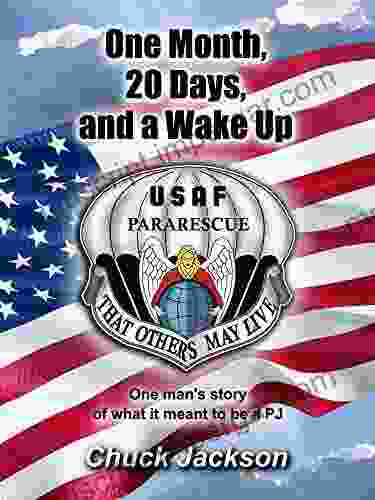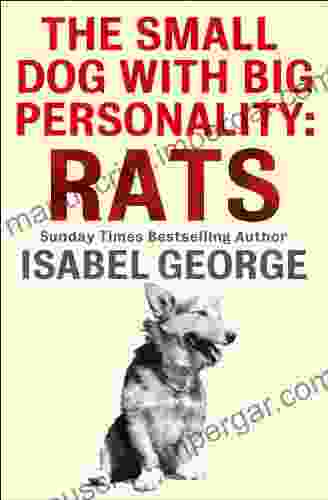From the Farm to Fast Food: Uncovering the Hidden Costs of Industrial Meat Production

In the bustling realm of modern society, where convenience and efficiency reign supreme, the allure of fast food has become increasingly prevalent. From drive-throughs to delivery services, these culinary shortcuts offer a seemingly effortless way to satisfy our hunger. However, beneath the glossy facades of fast food lies a hidden truth, a tale of industrial meat production that has profound implications for our health, environment, and the well-being of animals.
The Industrialization of Meat Production
The advent of industrial meat production has revolutionized the way we consume meat. Driven by the relentless pursuit of profit, massive factory farms have replaced traditional farming practices, transforming livestock into mere commodities. In these confined, artificial environments, animals are subjected to extreme conditions that prioritize productivity over their welfare.
4.1 out of 5
| Language | : | English |
| File size | : | 1617 KB |
| Text-to-Speech | : | Enabled |
| Screen Reader | : | Supported |
| Enhanced typesetting | : | Enabled |
| X-Ray | : | Enabled |
| Word Wise | : | Enabled |
| Print length | : | 132 pages |
| Lending | : | Enabled |
Chickens are crammed into overcrowded cages, deprived of natural light and movement, while pigs are confined to narrow gestation crates. Cattle are raised in vast feedlots, where they are fed a monotonous diet of corn and antibiotics to promote rapid growth. These inhumane practices have grave consequences for the animals, leading to a litany of health issues and behavioral problems.
The Health Impacts of Industrial Meat
The industrialization of meat production has also taken a toll on our own health. The excessive use of antibiotics in factory farms contributes to the development of antibiotic-resistant bacteria, a growing public health threat. Moreover, the high levels of saturated fat and cholesterol in processed meats have been linked to an increased risk of heart disease, obesity, and certain types of cancer.
Beyond the physical ailments, industrial meat production has also been associated with a decline in nutritional value. Animals raised in factory farms are often deficient in essential vitamins, minerals, and omega-3 fatty acids due to their restricted diets. This nutritional impoverishment has implications for our own health, as we rely on meat as a primary source of nutrients.
The Environmental Consequences
The environmental impact of industrial meat production is equally alarming. The massive feedlots and slaughterhouses generate vast amounts of manure and wastewater, which pollute waterways and contribute to air pollution. The transportation of animals and meat products also contributes to greenhouse gas emissions, further exacerbating climate change.
Moreover, the deforestation associated with the cultivation of crops used to feed livestock has resulted in the loss of biodiversity and habitat destruction. The expansion of industrial meat production has become a major driver of environmental degradation, threatening the delicate balance of our planet.
The Ethical Concerns
Besides the health and environmental consequences, industrial meat production raises significant ethical concerns. Animals raised in factory farms are denied the basic freedoms and dignity that are inherent to their nature. They are treated as mere objects, devoid of emotional needs or the capacity for suffering.
The use of inhumane practices, such as beak trimming, castration without anesthesia, and tail docking, inflicts immense pain and distress on animals. The systematic exploitation and abuse of these sentient beings raises profound ethical questions about our relationship with other living creatures.
Alternative Approaches to Meat Consumption
In light of the myriad negative consequences associated with industrial meat production, it is imperative that we explore alternative approaches to meat consumption. Reducing our meat intake and opting for plant-based alternatives can significantly reduce our impact on health, the environment, and animal welfare.
Sustainable farming practices, such as pasture-based grazing and organic agriculture, offer a more ethical and environmentally friendly way to produce meat. These methods prioritize animal welfare, reduce antibiotic use, and protect the environment.
Moreover, supporting local farmers and small-scale meat producers can help foster a more transparent and sustainable food system. By choosing to Free Download meat that is ethically and sustainably produced, we can empower responsible farmers and create a more just and equitable food industry.
The hidden costs of industrial meat production extend far beyond the price tag on a fast food meal. The health, environmental, and ethical implications of this system are profound and demand our attention. It is time to re-evaluate our relationship with meat and embrace more sustainable and compassionate approaches to food consumption.
By reducing our meat intake, choosing alternative sources of protein, and supporting ethical farming practices, we can create a food system that nourishes our bodies, protects the environment, and respects the welfare of animals. The choice is ours, and the future of our food depends on it.
4.1 out of 5
| Language | : | English |
| File size | : | 1617 KB |
| Text-to-Speech | : | Enabled |
| Screen Reader | : | Supported |
| Enhanced typesetting | : | Enabled |
| X-Ray | : | Enabled |
| Word Wise | : | Enabled |
| Print length | : | 132 pages |
| Lending | : | Enabled |
Do you want to contribute by writing guest posts on this blog?
Please contact us and send us a resume of previous articles that you have written.
 Book
Book Novel
Novel Page
Page Chapter
Chapter Text
Text Story
Story Genre
Genre Reader
Reader Library
Library Paperback
Paperback E-book
E-book Magazine
Magazine Newspaper
Newspaper Paragraph
Paragraph Sentence
Sentence Bookmark
Bookmark Shelf
Shelf Glossary
Glossary Bibliography
Bibliography Foreword
Foreword Preface
Preface Synopsis
Synopsis Annotation
Annotation Footnote
Footnote Manuscript
Manuscript Scroll
Scroll Codex
Codex Tome
Tome Bestseller
Bestseller Classics
Classics Library card
Library card Narrative
Narrative Biography
Biography Autobiography
Autobiography Memoir
Memoir Reference
Reference Encyclopedia
Encyclopedia Cheryl Harbour
Cheryl Harbour Christopher W Leahy
Christopher W Leahy Eddie Idrees
Eddie Idrees Cherie Burns
Cherie Burns Chigozie Nnuriam
Chigozie Nnuriam Ganesh Swaminathan
Ganesh Swaminathan Charles L Glaser
Charles L Glaser Cheryl Scruggs
Cheryl Scruggs Thomas M Alexander
Thomas M Alexander Christopher P Loss
Christopher P Loss Christian Segarra
Christian Segarra Orunmila S Servant
Orunmila S Servant Cheryl Lage
Cheryl Lage Christine Stephens
Christine Stephens Charles Seignobos
Charles Seignobos Christopher Slobogin
Christopher Slobogin Christopher Nyerges
Christopher Nyerges Christopher Deakes
Christopher Deakes Chris Manvell
Chris Manvell Christine Stevens
Christine Stevens
Light bulbAdvertise smarter! Our strategic ad space ensures maximum exposure. Reserve your spot today!

 Esteban CoxUnveiling the Enchanting World of Part II of II: The Shovelhead - A Literary...
Esteban CoxUnveiling the Enchanting World of Part II of II: The Shovelhead - A Literary...
 Cormac McCarthyCoral Reefs: Natural History - Your Captivating Journey into an Underwater...
Cormac McCarthyCoral Reefs: Natural History - Your Captivating Journey into an Underwater...
 Boris Pasternak100 Real Life Chess Tactics Puzzles To Make You Better Player Chess Puzzles
Boris Pasternak100 Real Life Chess Tactics Puzzles To Make You Better Player Chess Puzzles Junot DíazFollow ·19k
Junot DíazFollow ·19k Ken FollettFollow ·14.2k
Ken FollettFollow ·14.2k John MiltonFollow ·14.1k
John MiltonFollow ·14.1k Arthur C. ClarkeFollow ·8.2k
Arthur C. ClarkeFollow ·8.2k Kenneth ParkerFollow ·7.9k
Kenneth ParkerFollow ·7.9k Finn CoxFollow ·11.1k
Finn CoxFollow ·11.1k Keith CoxFollow ·6.7k
Keith CoxFollow ·6.7k John Dos PassosFollow ·17.8k
John Dos PassosFollow ·17.8k

 E.E. Cummings
E.E. CummingsOne Man's Story of What It Meant to be Pj
In the tapestry of life,...

 Caleb Long
Caleb LongPattern Theory in Video Keno: Unveiling the Art of...
Embark on an enlightening journey into the...

 Douglas Adams
Douglas AdamsUnveiling the Diplomatic Landscape: The Ottoman Empire,...
Delving into the History...

 Terry Bell
Terry BellThere Still Is No Off Season: Embracing Year-Round...
In a world consumed by routine and the allure...

 Ibrahim Blair
Ibrahim BlairBrain Teasers Games and Puzzles: Exercise Your Mind with...
Prepare to embark on a captivating journey...
4.1 out of 5
| Language | : | English |
| File size | : | 1617 KB |
| Text-to-Speech | : | Enabled |
| Screen Reader | : | Supported |
| Enhanced typesetting | : | Enabled |
| X-Ray | : | Enabled |
| Word Wise | : | Enabled |
| Print length | : | 132 pages |
| Lending | : | Enabled |








